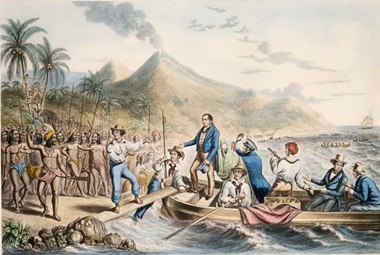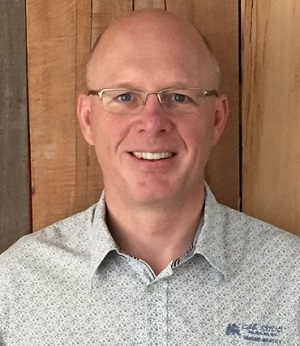
Mission can happen anywhere around us. UGM image (related to their Transforming Communities Grants; see December 5 article).
I’ve had a few interactions recently that strongly suggest to me that church tradition trumps Scripture when it comes to a definition of mission.
Below are three knock-on concerns I have with using the definition above.
- We believe that mission (for the most part) is the job of a missionary.
- Mission happens away from home.
- If I do share the Gospel locally, that is called evangelism.
I’ll address the implications of each of these concerns in a bit. First, I’d like to introduce a couple of good definitions of mission.
The well-known missiologist David Bosch says:
Mission (is) understood as being derived from the very nature of God. It (is) thus put in the context of the doctrine of the Trinity, not of ecclesiology or soteriology. The classical doctrine of the missio Dei as God the Father sending the Son, and God the Father and the Son sending Spirit (is) expanded to include yet another “’movement’: Father, Son and Holy Spirit sending the church into the world. (Transforming Mission, page 546)
Chris Wright says,
When I speak of mission, I am thinking of all that God is doing in his great purpose for the whole of creation and all that he calls us to do in cooperation with that purpose. (Mission and God’s People, page 25)
Lately, I’ve been very challenged when I read a mission statement ascribed to Jesus, found in Isaiah 61. The beginning of the chapter reads:
The Spirit of the Sovereign Lord is on me, because the Lord has anointed me to proclaim good news to the poor.
He has sent me to bind up the brokenhearted, to proclaim freedom for the captives and release from darkness for the prisoners, to proclaim the year of the Lord’s favour and the day of vengeance of our God, to comfort all who mourn, and provide for those who grieve in Zion – to bestow on them a crown of beauty instead of ashes, the oil of joy instead of mourning, and a garment of praise instead of a spirit of despair.
They will be called oaks of righteousness, a planting of the Lord for the display of his splendour.
I’ve been thinking (and maybe you might too) that if this is Jesus’ mission statement, and if Christ is being formed in me, and I’m called to continue his mission, then this mission statement is my mission statement. I find in Isaiah 61 a holistic picture of the impact of the Gospel, not just a message of salvation, but an aspirational picture of the transformation of the world, which will be fulfilled at Christ’s return. In the meantime, we have work to do.
But, back to my concerns above.
- Mission is the job of a missionary.
Implications: If mission is the job of a missionary, then we devalue the calling for the priesthood of all believers to participate in Jesus’ mission.
Impact: In evangelical churches in Canada there has been a dramatic decline from approximately 12 percent of the population in 1995 to approximately four percent today. We need everyone to own their ‘Go’. (Matthew 28:18-20).
- Mission happens away from home.

Modern views of missionaries may not be quite this dated, but they do need some rethinking. Image of missionary John Williams arriving at Tanna in 1839.
Implications: If mission happens away from home, then we often rely on specialized organizations to make mission happen. This isn’t exactly a bad thing. The problem is that the Canadian church needs the creative apostolic gifting of the people in these organizations here. The apostle Paul worked in a team, an apostolic band, that was highly mobile and agile – but no less church than a local worshipping community. We need to reconsider our definition of church and the variety of modes or vehicles it is manifested in. I don’t think Paul ranked high in pastoral gifting (the most professionalized gift of our Canadian church), yet his contribution to the advancement of the Gospel is undisputed.
Impact: We keep sending away people who have a calling to break ground and reach people who don’t know Jesus, or we sideline their gifting in an effort to have them conform to the attractional model of local church that we’re comfortable with. The people of God (church) need to ‘Go’ into the world.
- If I do share the Gospel locally, that is called evangelism.
Implications: There are two big implications here. First, we limit the good news of the kingdom to proclamation. Evangelism scares many Christians, and rather than experiment with many beautiful and simple ways to express the good news of the kingdom, they just shut up and shut off. Second, it might reduce the scope of the good news to personal salvation and conversion rather than taking into consideration the full scope of Jesus’ mission, which was to introduce the kingdom of God in the world now through the church.
Impact: By equating mission and evangelism we reduce the number of people who are participating in Jesus’ mission and we further constrain the transformative power of the kingdom and its ability to impact all aspects of life.
In conclusion, definitions matter. Starting with the wrong definition leads to (often unexamined) implications and impacts. So, is the church’s mission an extension of the mission of Jesus? If it is, then we need to wrestle with another challenging question David Bosch asked – “What structures, patterns and forms of ministry are needed to enable the church to be faithful to its call to continue the mission of Christ?”
This question is what Novo Canada is exploring, and we’d love to have you join the dialogue, because doing the same-old-same-old just isn’t working. To find out more contact me at john.hall@novocanada.org.

John Hall
John Hall is President of Novo Canada. Before that he served for eight years as Executive Director at Mission Central (formerly Missions Fest Vancouver).
In 1997 he, his wife, and brother-in-law started Eco Outdoor Sports in Metro Vancouver. In 2003 John and his wife Wei stepped out of the business to prepare for full-time ministry. During that time the Lord impressed on John and his family the importance of hearing and obeying Jesus every day, something that he tries to integrate into everything he does.
In 2010 God changed the family’s direction and led him to finish his MA at Regent College in preparation for life as a full-time missionary. Now, with Novo, that journey continues with Canada as the focus for his missionary energy.
John and Wei live in Richmond; they have two adult girls.
